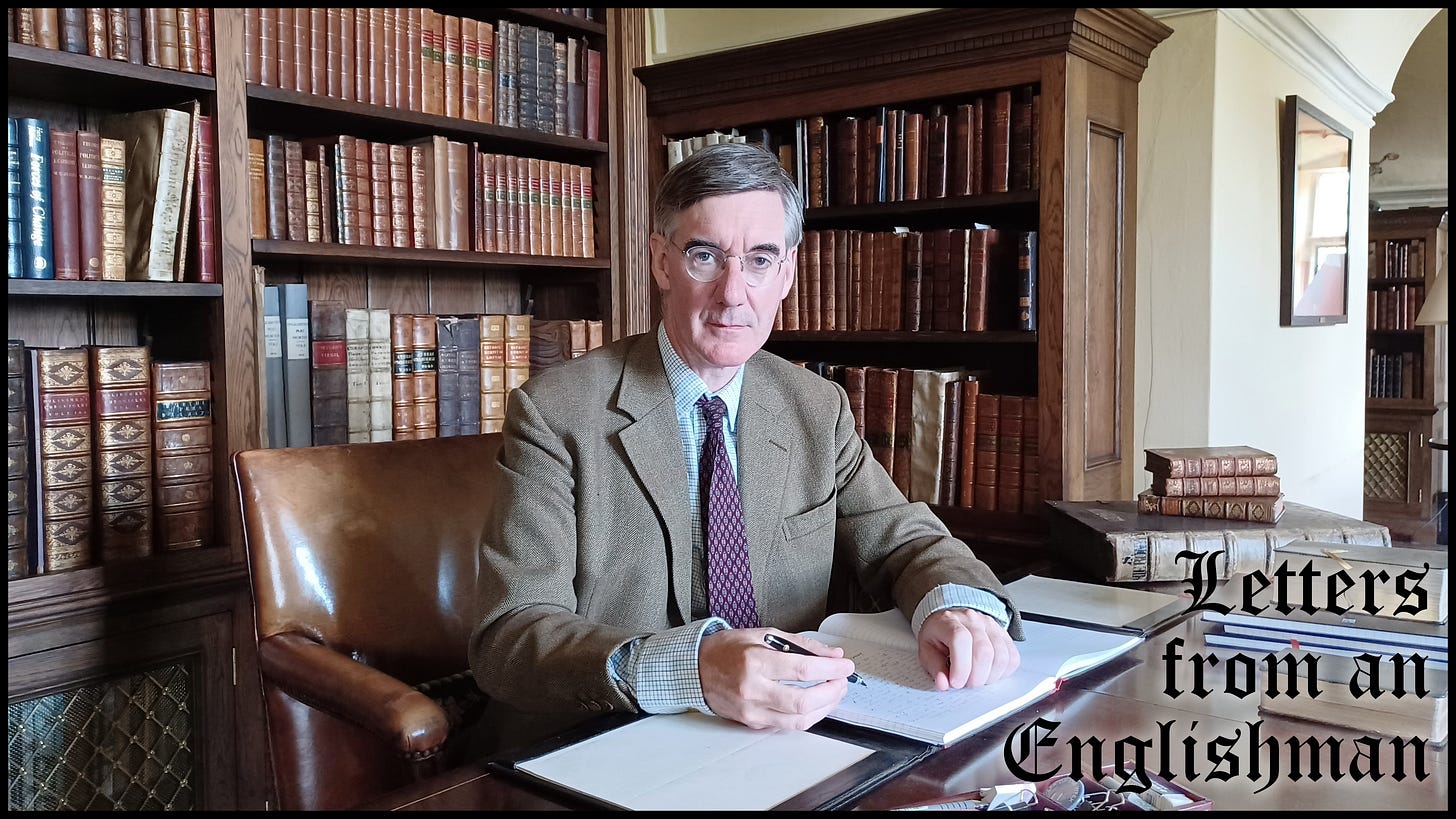Two opinion polls in the last week reveal the truth about the nation's views of Brexit. The first, in the establishment's official newspaper, the Sunday Times, remarkably revealed that 52% would vote to ‘Remain’. This was written up to show that Starmer's reset is working and is popular, but it is fundamentally misleading.
It is obviously impossible to remain in an organisation that you have left, and a referendum that asked if people wanted to ‘rejoin’ would have different connotations. Crucially, to rejoin would mean re-entering the EU without the rebate that we used to receive, that was worth several billion pounds per annum, and with a requirement to join the euro, neither of which would be palatable to voters.
Poll number one, therefore, shows more about those who commissioned it than its results. The BLOB is desperate to tie Britain in to a failing and bankrupt European Union that it always thought the electorate was stupid to vote to leave. I write Britain deliberately, as under the shameful Windsor Framework, Northern Ireland is, de facto, an EU colony.
The second poll, the British sovereignty poll for Queen Mary University, tries to get away from predetermined views on Brexit by not mentioning it specifically. It asks what powers people want the nation to have and which ones ought to be shared with international bodies. The poll gave respondents three options, alongside ‘don't know’, to twenty questions on decision making. These were ‘The UK government alone’, ‘The UK government involving other nations on a non-binding basis’, and ‘The UK government bound by international institutions’.
YouGov sampled 4,534 people who were asked ten of the twenty questions on a randomised basis to ensure a minimum of 2,200 answers per question. They were asked about a wide range of policy areas, including tax and VAT, environmental regulations, AI, medicine regulations, food standards and immigration.
On every single question, the most popular answer was the UK government alone, and in seventeen of the twenty questions, this answer, including the ‘don’t knows’, had over 50% support, so that, for example, on VAT, 71% want the UK to make the rules exclusively, while only 5% want the government to be bound by international institutions, as was the case when we were members of the EU. The three that did not have over 50% support were AI regulation, data protection, and trade rules.
Even issues such as environmental regulation, which are often considered of multinational relevance, saw an outright majority favouring independence. Examining the detail shows that a remarkable fifteen of the questions had an outright majority in favour of the UK government alone from people who had voted Remain, and even Green voters did so in eleven of the twenty.
This is very important, because it is increasingly clear that electors are fed up with the way they are currently governed. Labour has a huge majority but no mandate, and is unable to make difficult choices because backbench MPs will not offer ministers the support they need.
This discontent has seen a collapse in support of the two historic main parties; both Labour and the Conservatives, who have polled under 20% recently. Yet voters want their own politicians to take control, there is not discontent with Brexit per se, but with the problems of recent governments. The British people have not lost confidence in themselves to make decisions, but they have lost faith in those who are supposed to be making them.
This idea of taking back control was at the heart of the Brexit campaign, that decisions affecting the UK must be made by those who are democratically accountable to domestic voters. Poll number two shows that this is still what is wanted by a large majority, but it has not been delivered, and the current Labour government is moving further away from it with its latest reset.
The current situation sees power delegated to the Attorney General's view of international law, not national interest. Thus, the Chagos Islands are abandoned, and endless illegal migrants flow into the country, and both are predicated on international rather than local law. Chagos, because of a bogus UN court that we only agreed to on the basis that it did not rule on any dispute with a Commonwealth nation, and the illegal aliens because of the European Convention on Human Rights and the Refugee Convention.
In the case of migration, it is particularly clear that citizens want domestic determination, not foreign rule. Yet the last Tory administration and this Labour one have not taken the steps necessary to make this happen.
For the left, the reason is ideological, the Labour movement believes that “the workers of the world unite” and that those who do not wish to do so suffer from a “false consciousness”. It does not believe in the nation-state, but in internationalism. As it is aware that voters do not want to give up their own authority, and in truth do not much care about events in foreign countries, it must be done by stealth.
Hence, the whole European project was based on a gradual move to political union, while denying all the time that there was any plan for a super state. Once it became obvious that this was untrue, to some after the Maastricht Treaty, to many after the Lisbon Treaty, the desire to leave became unstoppable.
Unfortunately, the problem is not only this ideology, it is also the acceptance of decline. Far too many politicians have lost confidence in the United Kingdom and think its best days are behind it, and the only hope for the future is by tying ourselves to a bigger block.
This same declinism affected America prior to Trump. The Democrats felt its great days were in the past, which is why the power of the slogan ‘Make America Great Again’ helped Trump to victory. Opposition to this slogan carried the implication that America could not be great again, which did not go down well with voters. People want optimism from their politicians, not pessimism.
This poll on what people want the British government to do ought to fill politicians with hope; that the people are willing to try to make Britain great again, and they want to decide this for themselves.
Naturally, this involves risk. Every time anyone makes a decision for themselves, there is a risk it could go wrong, and be worse than allowing others to decide for you. In EU terms, being tied to a failure at least meant we would not be relatively worse off than our neighbours.
However, that is not good enough, democratically accountable decision-making has provided greatness in the past, and it can again. The problems of the economy and immigration are both solvable if we make them for our own interest. If we abandon the green folly that makes us cold and poor, and the European court that keeps criminals in this country, we could be masters of our own destiny.
It is wonderful that voters have confidence in their own nation, a positive position that looks to a bright future. The sadness is our politicians are such pessimists, but when politicians do not match the needs of a democratic people, new ones can and will replace them.
You can now earn rewards by referring friends. For instance, if you can encourage three friends to subscribe, you will receive a month’s paid subscription. For more details please see the Leaderboard page.
Your comments would be most welcome. Please click the button to join the conversation. However, please note that comments should relate to the article in hand, and please be civil to other people commenting. Thank you.












